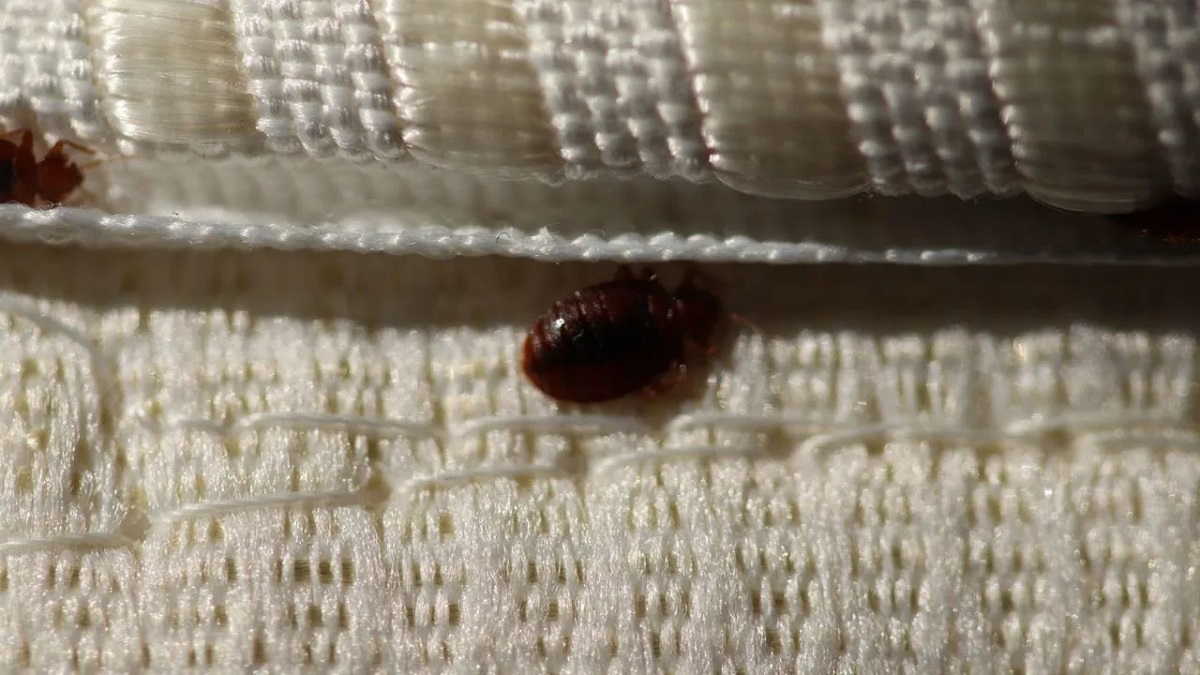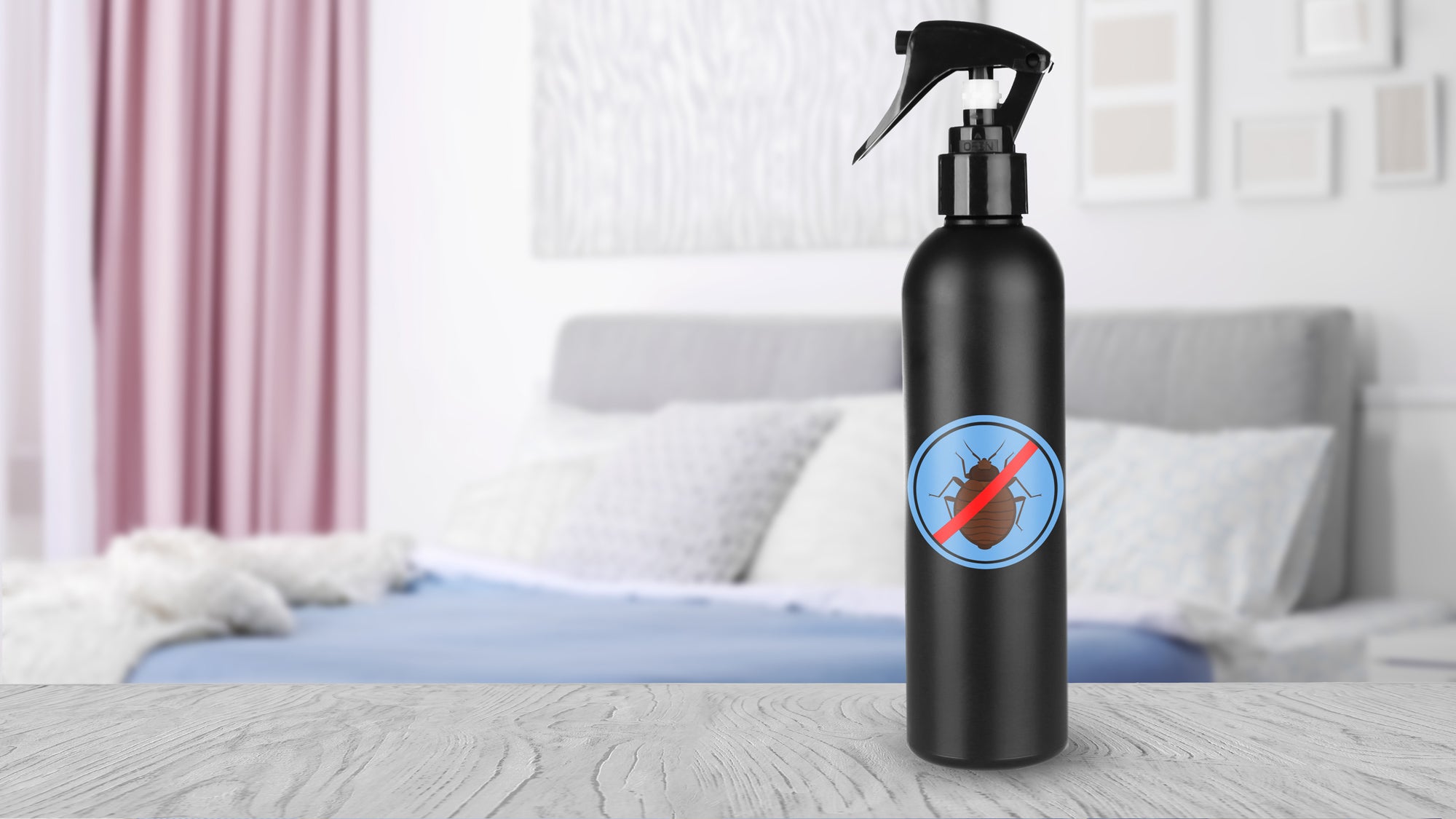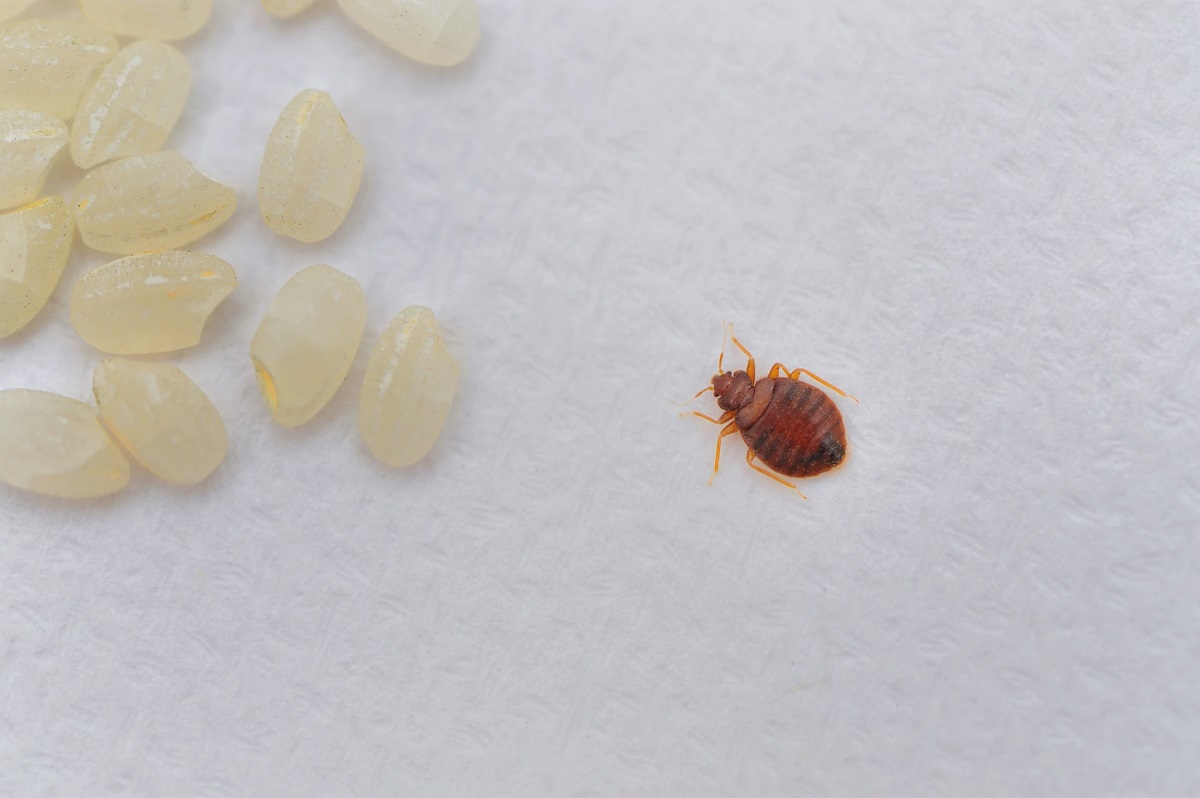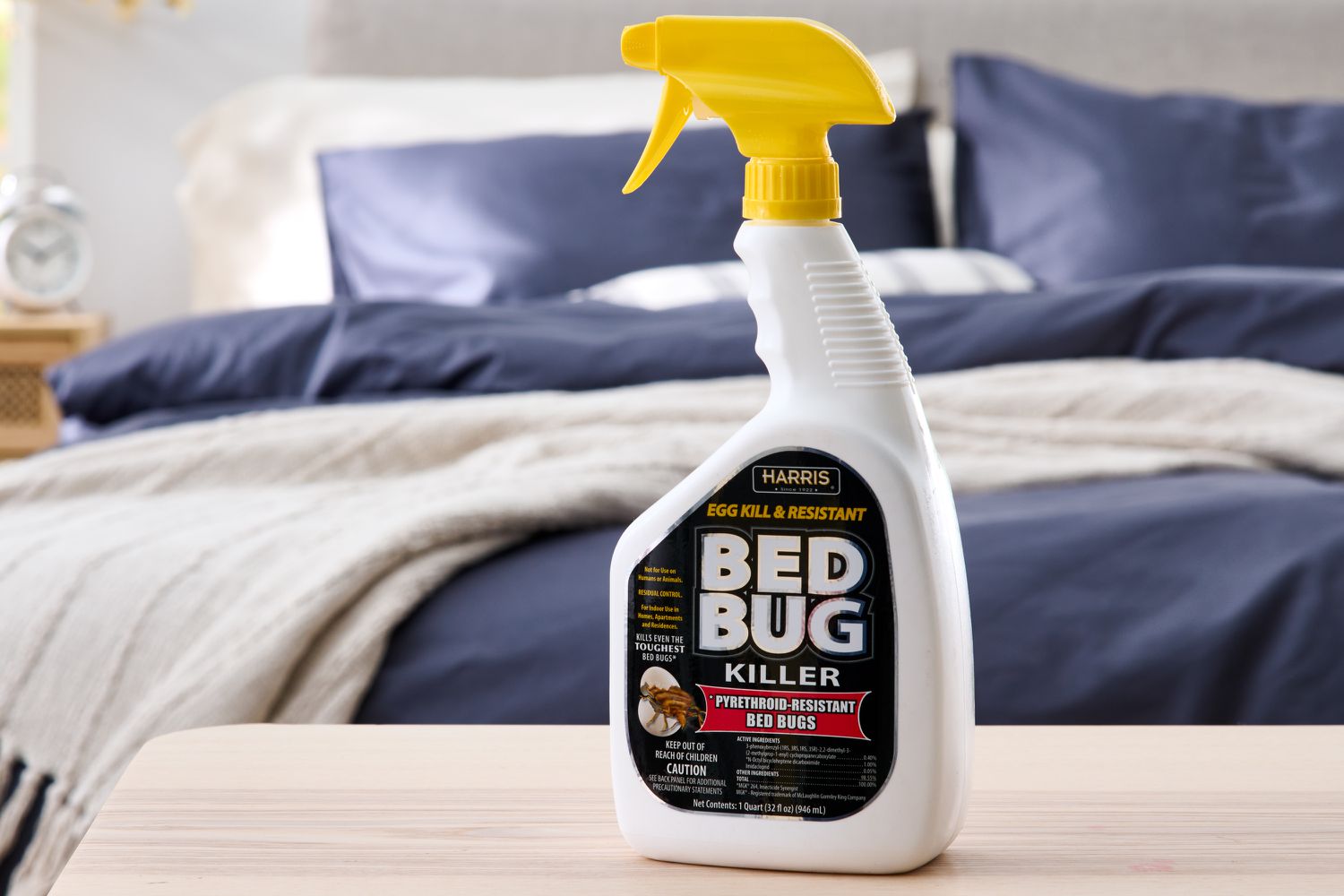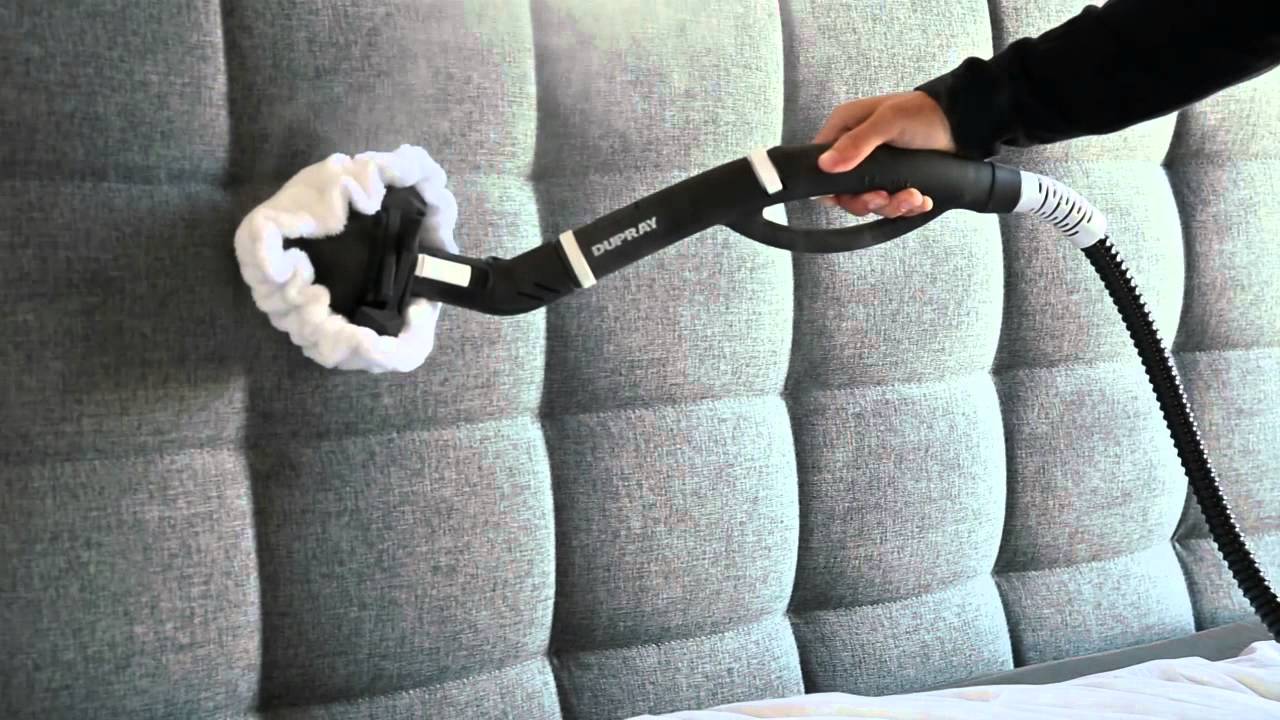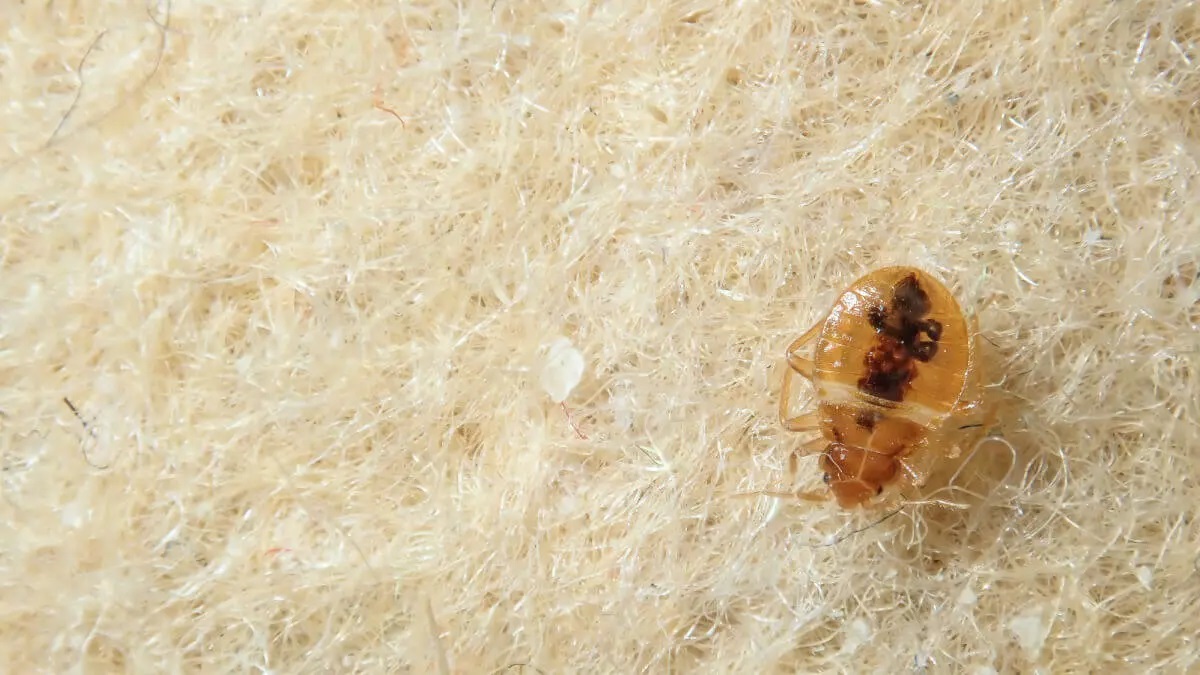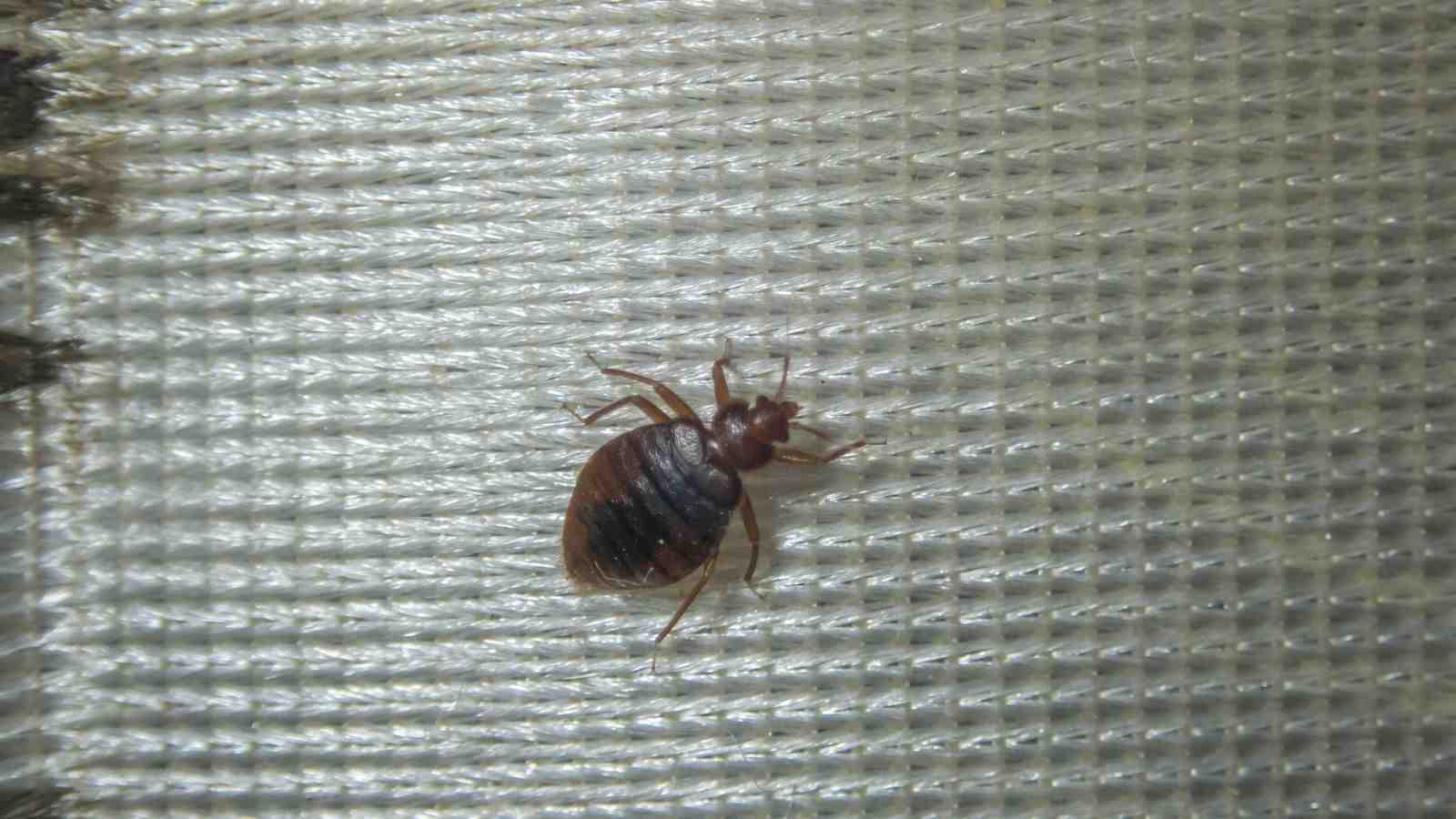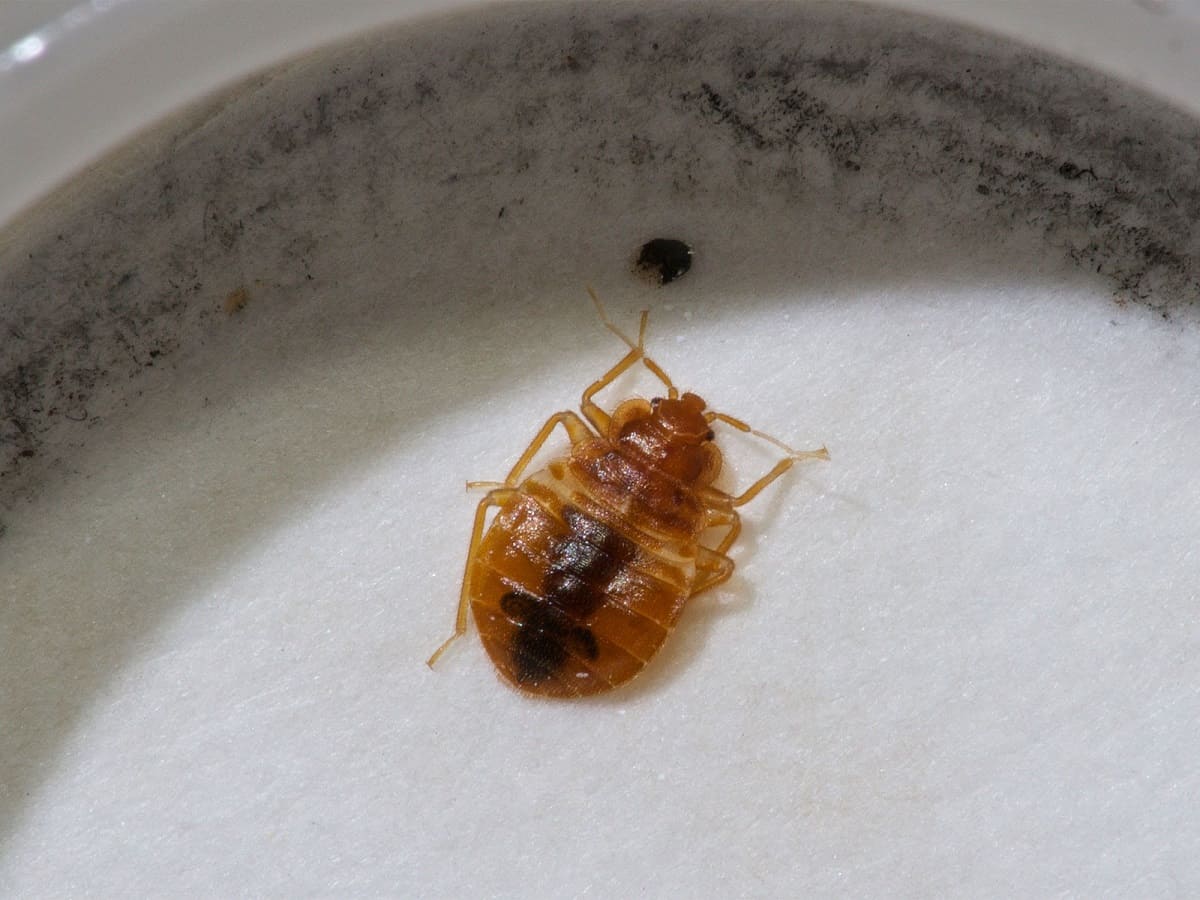Home>Furniture>Bedroom Furniture>What Repels Bed Bugs
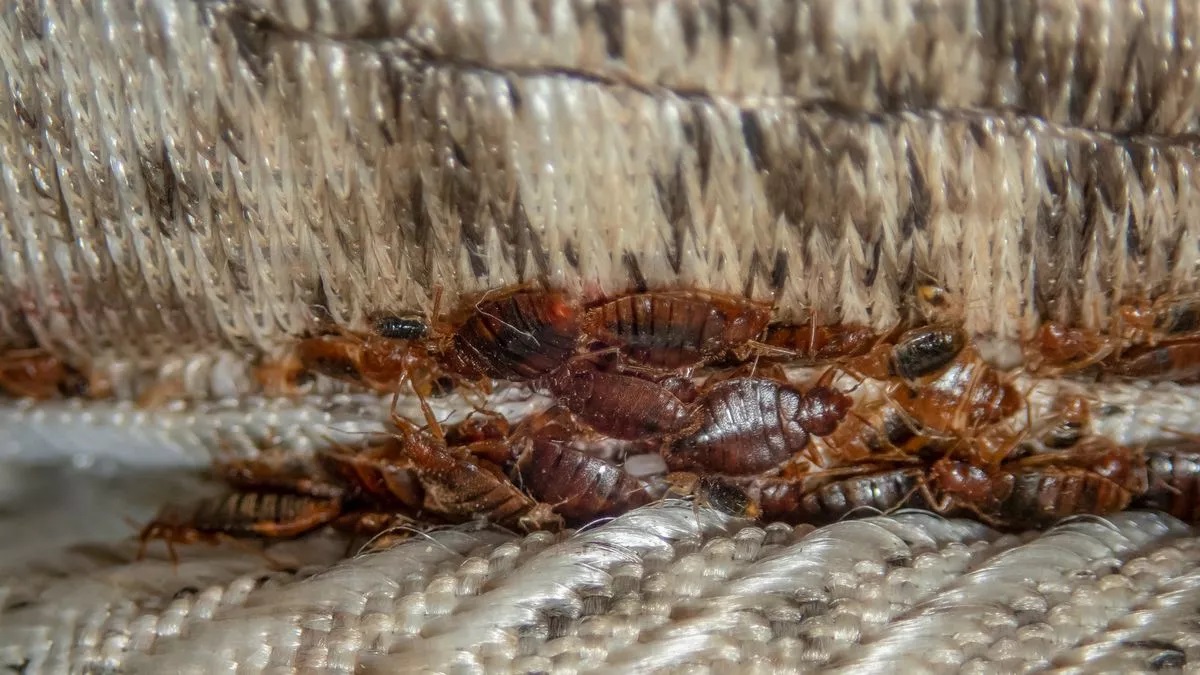

Bedroom Furniture
What Repels Bed Bugs
Modified: January 9, 2024
Discover the best ways to repel bed bugs and protect your bedroom furniture. Learn effective strategies to prevent infestations and keep your space bug-free.
(Many of the links in this article redirect to a specific reviewed product. Your purchase of these products through affiliate links helps to generate commission for Storables.com, at no extra cost. Learn more)
Introduction
When it comes to creating a comfortable and inviting bedroom space, one of the most important aspects to consider is keeping it free from pesky bed bugs. These tiny insects, scientifically known as Cimex lectularius, are notorious for their ability to infest mattresses, upholstery, and other bedroom furniture. Not only do they cause itchy bites, but bed bugs can also disrupt sleep and have a negative impact on overall well-being.
Understanding bed bugs and finding effective ways to repel them is essential for maintaining a clean and bug-free bedroom. While professional pest control services may offer effective solutions, not everyone wants to use chemical-based repellents in their living space. Luckily, there are natural alternatives available that can help repel bed bugs while ensuring a safe and comfortable environment.
In this article, we will explore different natural repellents for bed bugs, including essential oils, herbal remedies, and DIY options. We will also provide tips on how to bed bug-proof your bedroom to prevent infestations from occurring in the first place.
Key Takeaways:
- Natural repellents like essential oils and herbal remedies offer effective and pleasant alternatives to chemical-based bed bug repellents, creating a safe and inviting bedroom environment.
- Incorporating DIY methods, such as vacuuming and steam cleaning, along with proactive bed bug-proofing measures, can help prevent infestations and maintain a clean, bug-free home.
Read more: What Outdoor Plants Repel Bugs
Understanding Bed Bugs
Before delving into the various repellent options, it is important to have a basic understanding of bed bugs and their behavior. Bed bugs are small, reddish-brown insects that are typically less than half an inch in size. They are nocturnal creatures that feed on human blood, and they have a preference for warm and cozy areas, such as mattresses, upholstery, and cracks in walls or furniture.
Bed bugs are excellent hitchhikers, meaning they can easily travel from one location to another by hitching a ride on luggage, clothing, or even pets. This is why it is important to be cautious when staying in hotels or using second-hand furniture, as these are common ways for bed bugs to enter your home.
Typical signs of a bed bug infestation include small bites on the skin, bloodstains on sheets or pillowcases, and even a musty odor. If you suspect a bed bug infestation, it is crucial to take immediate action to prevent the problem from worsening.
While bed bugs are not known to transmit diseases, their presence can cause significant discomfort and stress. Therefore, it is important to address the issue promptly and choose the most suitable method to repel and eradicate these unwanted pests.
Please note that severe infestations may require professional intervention, so it is always advisable to consult with an expert if you find yourself dealing with an overwhelming bed bug problem.
Natural Repellents
When it comes to repelling bed bugs naturally, there are various options to consider. These alternatives provide effective solutions while minimizing the use of harsh chemicals in your living space. Let’s explore some of the most popular natural repellents.
Essential Oils
Essential oils are highly concentrated plant extracts known for their aromatic properties. They also possess natural insect-repellent qualities. Some essential oils that have proven to be effective in repelling bed bugs include:
- Lavender oil: Known for its calming scent, lavender oil can help repel bed bugs. Add a few drops to a spray bottle with water and spritz it on your mattress, bedding, and other infested areas.
- Peppermint oil: The strong scent of peppermint oil is known to deter bed bugs. Mix a few drops of peppermint oil with water and spray it around your bed and other infested areas.
- Tea tree oil: Tea tree oil has powerful antimicrobial properties and can help repel bed bugs. Mix a few drops of tea tree oil with water and spray it on infested areas.
Remember to always dilute essential oils before using them, as they can be strong and may cause skin irritation if applied directly.
Herbal Remedies
In addition to essential oils, certain herbal remedies are believed to repel bed bugs effectively. These include:
- Diatomaceous earth: Made from the fossilized remains of algae, diatomaceous earth acts as a desiccant, drying out and killing bed bugs. Sprinkle a thin layer of food-grade diatomaceous earth around your bed and other infested areas.
- Neem oil: Neem oil is derived from the seeds of the neem tree and is known for its insect-repellent properties. Mix a few drops of neem oil with water and spray it on your bedding and furniture.
Keep in mind that herbal remedies may require repeated use and should be used in conjunction with other preventive measures for optimal results.
Read more: What Are Bed Bugs
DIY Bed Bug Repellents
In addition to essential oils and herbal remedies, there are several do-it-yourself (DIY) options that can help repel bed bugs naturally. These include:
- Vacuuming: Regularly vacuuming your mattress, upholstery, and bedroom floors can help remove bed bugs and their eggs. Be sure to empty the vacuum cleaner immediately after use.
- Steam cleaning: The high temperature of steam can kill bed bugs and their eggs. Use a steam cleaner to treat your mattress, furniture, and other infested areas.
- Washing and drying: Wash your bedding, curtains, and clothing in hot water, followed by a thorough drying cycle on high heat. This helps kill any bed bugs hiding in the fabric.
By combining these natural repellents with DIY methods, you can create a more inhospitable environment for bed bugs and reduce the chances of infestation.
Essential Oils
Essential oils have gained popularity in recent years for their wide range of benefits, including their ability to repel bed bugs. These highly concentrated plant extracts contain natural compounds that are effective in deterring these pesky pests. Here are some essential oils that are known to be effective in repelling bed bugs:
Lavender Oil
Lavender oil is not only beloved for its calming fragrance but also for its insect-repellent properties. Bed bugs are repelled by the scent of lavender, making it an excellent natural option for keeping them at bay. You can create a lavender spray by diluting a few drops of lavender essential oil in water and spraying it on your mattress, bedding, and other infested areas. Alternatively, you can also place lavender sachets near your bed to ward off bed bugs.
Peppermint Oil
Peppermint oil has a strong and refreshing scent that bed bugs find repulsive. Mix a few drops of peppermint essential oil with water in a spray bottle and spray it around your bed, baseboards, and other areas where bed bugs might hide. This will create a deterrent effect, making your bedroom less appealing to these pests.
Read more: What Causes Bed Bugs
Tea Tree Oil
Tea tree oil is well-known for its antimicrobial and insect-repellent properties. It is effective in repelling bed bugs and also helps in killing them. Mix a few drops of tea tree oil with water and use it as a spray on your mattress, bedding, and furniture. Additionally, you can add a few drops of tea tree oil to your laundry when washing your infested bedding or clothing to ensure thorough elimination of bed bugs.
Eucalyptus Oil
Eucalyptus oil contains compounds like cineole and limonene, which are known to repel bed bugs. Create a spray by mixing a few drops of eucalyptus oil with water and spray it in areas where bed bugs are likely to hide. This oil can also be used in conjunction with other essential oils for a more potent repellent blend.
It is essential to note that essential oils should be used with caution, as some people may be sensitive or allergic to them. Always dilute essential oils before using them and do a patch test on a small area of your skin to check for any adverse reactions. Additionally, essential oils are not a standalone solution and should be used in combination with other preventive measures for effective bed bug control.
With their pleasant scents and natural properties, essential oils not only repel bed bugs but also create a relaxing and uplifting atmosphere in your bedroom. Incorporating these oils into your bed bug control routine can help you maintain a clean, fresh-smelling, and bug-free sleeping environment.
Herbal Remedies
In addition to essential oils, there are several herbal remedies that can help repel bed bugs naturally. These remedies have been used for centuries and are considered safe alternatives to chemical-based repellents. Here are some herbal remedies that you can try:
Diatomaceous Earth
Diatomaceous earth is a natural substance that is made from the fossilized remains of diatoms, a type of microscopic algae. It is available in powder form and works by dehydrating and eventually killing bed bugs. Sprinkle a thin layer of food-grade diatomaceous earth around your bed, baseboards, and other areas where bed bugs are present. As bed bugs come into contact with the powder, it clings to their bodies and absorbs the moisture, causing them to dry out and perish. Be sure to use food-grade diatomaceous earth, as the one used for pool filtration may contain additional chemicals that are harmful when applied indoors.
Read more: What Attracts Bed Bugs
Neem Oil
Neem oil is derived from the seeds of the neem tree, which is native to India. It has been used for centuries as a natural insect repellent and has shown effectiveness against bed bugs. Neem oil contains compounds that disrupt the bed bugs’ exoskeleton, leading to their demise. To use neem oil as a repellent, mix a few drops with water in a spray bottle and apply it to your mattress, furniture, and other infested areas. Additionally, you can mix neem oil with a carrier oil, such as coconut oil, and apply it topically to your skin to help prevent bed bug bites.
Lemon Juice
Lemons are known for their acidic properties and can be an effective natural repellent for bed bugs. Squeeze fresh lemon juice into a spray bottle and dilute it with water. Spray the mixture around your bed, baseboards, and other areas where bed bugs might be present. The strong citrus scent of lemon repels bed bugs and can help prevent them from infesting your living space. Refresh the spray every few days to maintain its effectiveness.
Black Walnut Tea
Black walnut tea is an herbal remedy that has been used traditionally to repel various insects, including bed bugs. Brew a strong cup of black walnut tea using black walnut hulls or leaves and allow it to cool. Transfer the tea to a spray bottle and apply it to your mattress, bedding, and other infested areas. The natural compounds present in black walnut act as a deterrent to bed bugs, discouraging them from settling in your bedroom.
While herbal remedies can be effective in repelling bed bugs, keep in mind that they may require repeated use and can take time to show results. It is important to use these remedies in conjunction with other preventive measures, such as regular cleaning, decluttering, and sealing cracks and crevices, to ensure long-term prevention of bed bug infestations.
DIY Bed Bug Repellents
In addition to essential oils and herbal remedies, there are several DIY methods that can help repel bed bugs naturally. These methods are easy to implement and can be incorporated into your regular cleaning routine. Here are some effective DIY bed bug repellents:
Read more: What Color Are Bed Bugs
Vacuuming
Regularly vacuuming your mattress, upholstery, and bedroom floors can help eliminate bed bugs and their eggs. Use a vacuum cleaner with a hose attachment to reach into crevices and hard-to-reach areas. Pay close attention to seams, tufts, and edges of mattresses, as well as cracks in furniture and baseboards where bed bugs may hide. After vacuuming, immediately empty the vacuum cleaner bag or canister into a sealed bag and dispose of it outdoors to prevent any captured bed bugs from escaping back into your home.
Steam Cleaning
Steam cleaning is an effective method to kill bed bugs and their eggs. The high temperature of steam penetrates fabrics and upholstery, effectively eliminating these pests. Use a steam cleaner with a fine nozzle attachment to treat your mattress, furniture, and other infested areas. Move the steam cleaner slowly over the surface, ensuring that the steam comes into contact with all bed bug hiding spots. Be cautious when using steam on delicate materials to avoid damaging them.
Washing and Drying
Washing and drying your bedding, curtains, and clothing in hot water can help eliminate bed bugs. Set the water temperature to at least 120°F (49°C) and wash your items thoroughly. After washing, transfer them to the clothes dryer and tumble dry on high heat for 30 minutes or more. The high heat kills both bed bugs and their eggs. Ensure that all items are completely dry before returning them to your bedroom.
Sealing Cracks and Crevices
Bed bugs can hide in small cracks and crevices around the bedroom, making it essential to seal these entry points. Inspect your room for gaps in baseboards, walls, electrical outlets, and other potential hiding spots. Use caulk or sealant to fill in any cracks or crevices. This helps prevent bed bugs from entering and infesting your living space.
Read more: What Helps Bed Bug Bites
Decluttering
Thoroughly declutter your bedroom and surrounding areas to eliminate potential hiding spots for bed bugs. Remove any unnecessary items, such as stacks of papers, cluttered clothing, and unused furniture. Bed bugs can hide in cluttered areas, making it difficult to detect and eliminate them. Keeping your room tidy and organized reduces the number of potential hiding spots and makes it easier to detect and treat any infestations.
By incorporating these DIY methods into your bed bug prevention routine, you can create an inhospitable environment for these pests. Consistency and thoroughness are key to ensuring long-term success in repelling and eliminating bed bugs from your living space.
Bed Bug-Proofing Your Home
Prevention is always better than dealing with a full-blown bed bug infestation. Protecting your home from these unwanted pests can save you the hassle and stress of trying to eliminate them later. Here are some effective measures you can take to bed bug-proof your home:
Inspect Second-Hand Furniture
If you are considering purchasing second-hand furniture, thoroughly inspect it for any signs of bed bugs before bringing it into your home. Look for dark stains, shed skins, or live bugs hiding in the crevices. Pay close attention to seams, cracks, and corners. If you spot any signs of bed bugs, it is best to avoid bringing the furniture into your home to prevent an infestation.
Use Protective Bedding
Invest in bed bug-proof encasements for your mattresses and box springs. These special covers are designed to prevent bed bugs from entering or escaping your bedding. Look for encasements that are specifically labeled as bed bug-proof. Additionally, consider using bed bug-proof pillow covers to protect your pillows. This creates a barrier between you and any potential bed bugs, reducing the risk of infestation.
Read more: What Temperature Kills Bed Bugs
Keep a Clean and Clutter-Free Bedroom
Bed bugs thrive in cluttered environments where they can easily hide and breed. Keep your bedroom clean and clutter-free to minimize potential hiding spots for bed bugs. Regularly vacuum your mattress, upholstery, and bedroom floors. Avoid leaving clothes, blankets, or other items piled on the floor or furniture where bed bugs can easily seek refuge.
Be Cautious When Traveling
When traveling, be mindful of the potential risk of bringing bed bugs back with you. Inspect hotel rooms for signs of bed bugs before unpacking your belongings. Place your luggage on luggage racks instead of directly on the floor or bed. Upon returning home, wash and dry your clothes on high heat to kill any potential bed bugs.
Monitor and Act Promptly
Regularly monitor your bedroom for any signs of bed bugs. Look for bite marks, bloodstains on sheets, or small dark spots (fecal matter). If you suspect an infestation, take immediate action by implementing treatment methods or contacting a professional exterminator. Early detection and intervention can prevent the problem from escalating.
While these preventive measures can significantly reduce the risk of a bed bug infestation, it’s important to remember that no method is foolproof. If you find yourself dealing with a bed bug problem despite taking precautions, it’s best to consult with a professional pest control service for effective eradication.
Conclusion
Bed bugs can be a nightmare to deal with, but with the right knowledge and tools, you can protect your home and keep these pesky pests at bay. Natural repellents, such as essential oils and herbal remedies, offer effective alternatives to chemical-based repellents. Essential oils like lavender, peppermint, and tea tree oil can help repel bed bugs while providing a pleasant scent in your bedroom. Herbal remedies like diatomaceous earth and neem oil have also shown to be effective in deterring bed bugs.
Implementing DIY methods, such as vacuuming, steam cleaning, and washing/drying your bedding, can help eliminate bed bugs and prevent infestations. Additionally, sealing cracks and decluttering your bedroom create a less inviting environment for bed bugs to hide and breed.
Bed bug-proofing your home is another important step in preventing infestations. Inspecting second-hand furniture, using protective beddings, keeping a clean and clutter-free bedroom, and being cautious when traveling can significantly reduce the risk of bringing bed bugs into your living space.
It’s crucial to actively monitor your bedroom for signs of bed bugs and take immediate action if an infestation is suspected. Early detection and intervention can prevent the problem from spreading and becoming more challenging to eliminate.
Remember, natural repellents and DIY methods can be effective for minor infestations. However, for severe infestations, it’s recommended to seek professional assistance to ensure effective elimination and prevent recurrence.
By implementing these preventive measures and incorporating natural repellents into your routine, you can create a clean, comfortable, and bed bug-free environment in your home. Sweet dreams and peace of mind await you!
Frequently Asked Questions about What Repels Bed Bugs
Was this page helpful?
At Storables.com, we guarantee accurate and reliable information. Our content, validated by Expert Board Contributors, is crafted following stringent Editorial Policies. We're committed to providing you with well-researched, expert-backed insights for all your informational needs.
